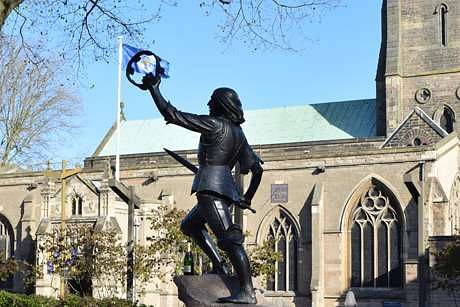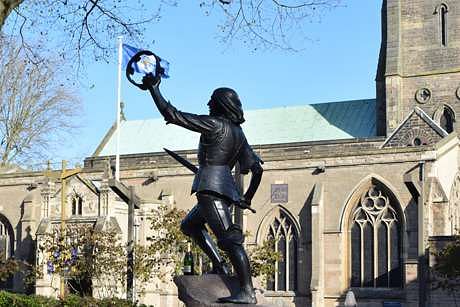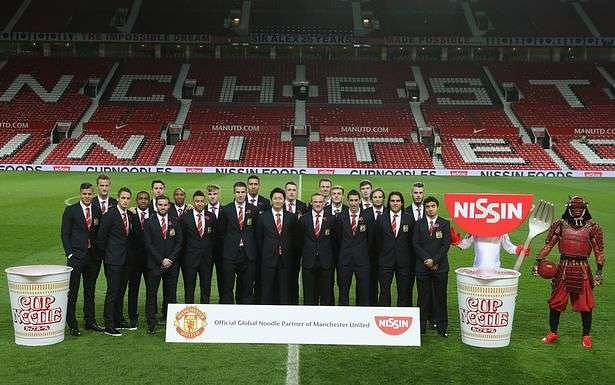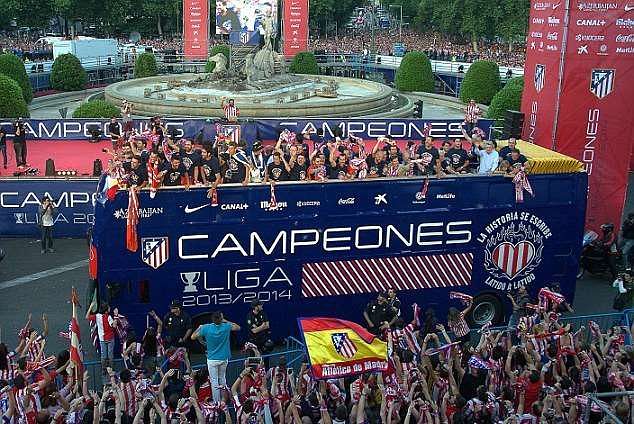
Leicester City’s glorious summer: Celebrating the greatest sporting tale of the decade

“Now is the winter of our discontent, made glorious summer by this sun of York”
‘Tis how Richard the Third, begins his tale, describing the ascension to the throne of his brother King Edward IV after the scions of the House of York seized it from the clutches of Henry VI and the House of Lancaster. It’s one of William Shakespeare most evocative works, a tragedy full of improbable twists and turns that revolve around the War of the Roses and the battle for the throne of the most powerful Kingdom on Earth at the time; all between families and clans that see the throne as their birthright.
From time immemorial, that has been the script for epics and ballads the world over. Be it the Iliad or the Mahabharata, or the twenty-first century’s Game of Thrones; heroic tales of war and triumph have always revolved around the privileged few.
Even in the most fantastical of stories, royalty isn’t passed around like a football in the Camp Nou, it is exclusive; kings will fight dethroned monarchs, queens will plot against princesses and crown princes will fight the sons of exiled royalty.
This is because all the greatest storytellers in history have known that the one thing that makes a story truly great is its ability to be rooted in reality. And the reality is that it is almost always the privileged that wield, and consequentially fight for, power.
Hell, even Cinderella was the daughter of a rich, widowed baron, (or a lord, in some versions); in the first known European Cinderella story, Cenerentola, the father is a widowed prince. Her eventual marriage to the Prince merely establishes that she got back what was rightfully hers.
There is no such thing as a Cinderella Story, not in the way we like to imagine it.
In Sports, as in life
It is to escape this drab reality that most of us turn to sports, to live vicariously through our favourite heroes, and to be taken to highs of victory and jubilation that otherwise most of us cannot even conjure up in our imaginations. Even in sports, though, nobility and privilege belong to only a fanciful few.
While this has usually held true over the ages, it has become even more pronounced in the modern era. Commercial success engineered by global marketing campaigns using words like “synergy”, “catalyst” and “leverage” have seen sports entities get into all kinds of inane tie-ups with businesses across the world.
Sports has become a big-bucks business and none more so than the world’s most popular one, football. This commercial success has brought about an unprecedented difference in wealth, and subsequently success, between the haves and the have-nots. Take for example Europe’s top football leagues.
Over the last decade, the English league has been won by Manchester United, Chelsea and Manchester City with a combination of these three along with Arsenal and Liverpool comprising the top three, year after bloody year.
In Italy, the winners have been Internazionale, AC Milan and Juventus with no one else even coming close to competing. In Spain, it’s been a duopoly between the two biggest clubs in the world, Real Madrid and Barcelona, with Atlético Madrid’s victory in 2013-14 the sole standout.
It’s gotten so bad, that a lot of us have been celebrating Atléti’s victory and the relative success of the team in the past two years as the victory of the underdog. But, Atléti, who are Spain’s third wealthiest club, had have spent € 136.11 million this season and have won more first-division titles than any other club outside the Big Two are no underdog.
Not in the truest sense of the word anyway. But similar is the case with the Bundesliga victories of VfB Stuttgart (five-time Bundesliga Champions) and VfL Wolfsburg (bankrolled by the all-powerful Volkswagen group) in a league dominated by Bayern Munich with sporadic resistance from Borussia Dortmund.
Much like the Pandavas, they were always royalty – they just weren’t as powerful as their foes.
Think of it like this - Liverpool winning the EPL: Great story? Hell yes; An underdog’s victory over the elite? Hell no.
Which is not to say that true underdogs don’t win at all in sport these days – Flavia Pennetta won the US Open last year, Brawn GP won the F1 constructor’s championship in 2009 (to call anyone non-privileged in the stratified world of F1 is slightly amusing though), Greece won the European Championships in 2004 (slightly outside the time-frame of this decade, but still relevant) and for goodness’ sake, Japan beat South Africa in an actual Rugby World Cup match.
The thing is though, without diminishing the greatness of any of these - or any such – triumphs, if you were to study them you would see that most occurred either as one-off cases or in tournaments that generally don’t last for more than a month. It is easier (relatively speaking of course) to build up a head of steam, or have a really good spell (where all your talents work at their peak powers) over the course of such short durations.
This is also why it is next to impossible for the non-privileged to win a top football league spread out over ten unforgiving months; why Leicester City were given odds of 5000 to 1 by bookmakers (usually the most expert of sporting forecasters) to actually go on and win the English Premier League (odds that remained at 1000 to 1 even as late as January); and also why Leicester City Football Club being crowned the Champions of England is nothing short of the greatest sporting achievement of the past decade.

